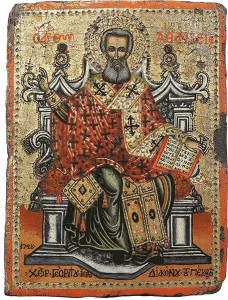The Gospels that Didn’t Make the Cut

The New Testament recognized by most Christians today comprises 27 books accepted as authoritative, or canon. But what made some writings canonical and others not? It took time, centuries in fact, for the early church to determine which texts should be added to the Jewish Tanakh to form the Christian Bible … and which texts should be excluded.
By the end of the second century, the Church urged Christians to avoid reading any writings other than the official canon of Christian scripture; in fact, many writings were “lost” (or hidden) for centuries. It wasn’t until the beginning of the Renaissance that scholars began to uncover old manuscripts in monastic libraries. Many more writings were “lost” for far longer, some rediscovered in only the past hundred years.
Why do these writings matter? Isn’t the New Testament the final authority? Well, scholars will tell you it depends on which New Testament you mean. The shape of the Christian Bible has not remained static across the centuries. The Eastern Orthodox Church, Syrian Orthodox Church, Armenian Church, Ethiopian Church, and others each have their own interpretation of the New Testament canon.
From the very beginning, Christianity has been a religion of texts and story. It is inevitable that some non-canonical, or apocryphal, writings will contradict what is now considered canon. But scholars emphasize that these writings—no matter how controversial—are worth studying, because they contribute to a deeper understanding of the origins of Christianity.
How the Books of the New Testament Were Chosen
Bible Review, April 1993
by Roy W. Hoover
The 34 Gospels: Diversity and division among the earliest Christians
Bible Review, Charles W. Hedrick
by June 2002
“Lost Gospels”—Lost No More
BAR, September/October 2016
by Tony Burke
The Gospel of Thomas: Jesus Said What?
BAR, July/August 2015
by Simon Gathercole
The Gospels that Didn’t Make the Cut
Bible Review, August 1993
by Robert J. Miller
The Proto-Gospel of James
by Mark Goodacre
